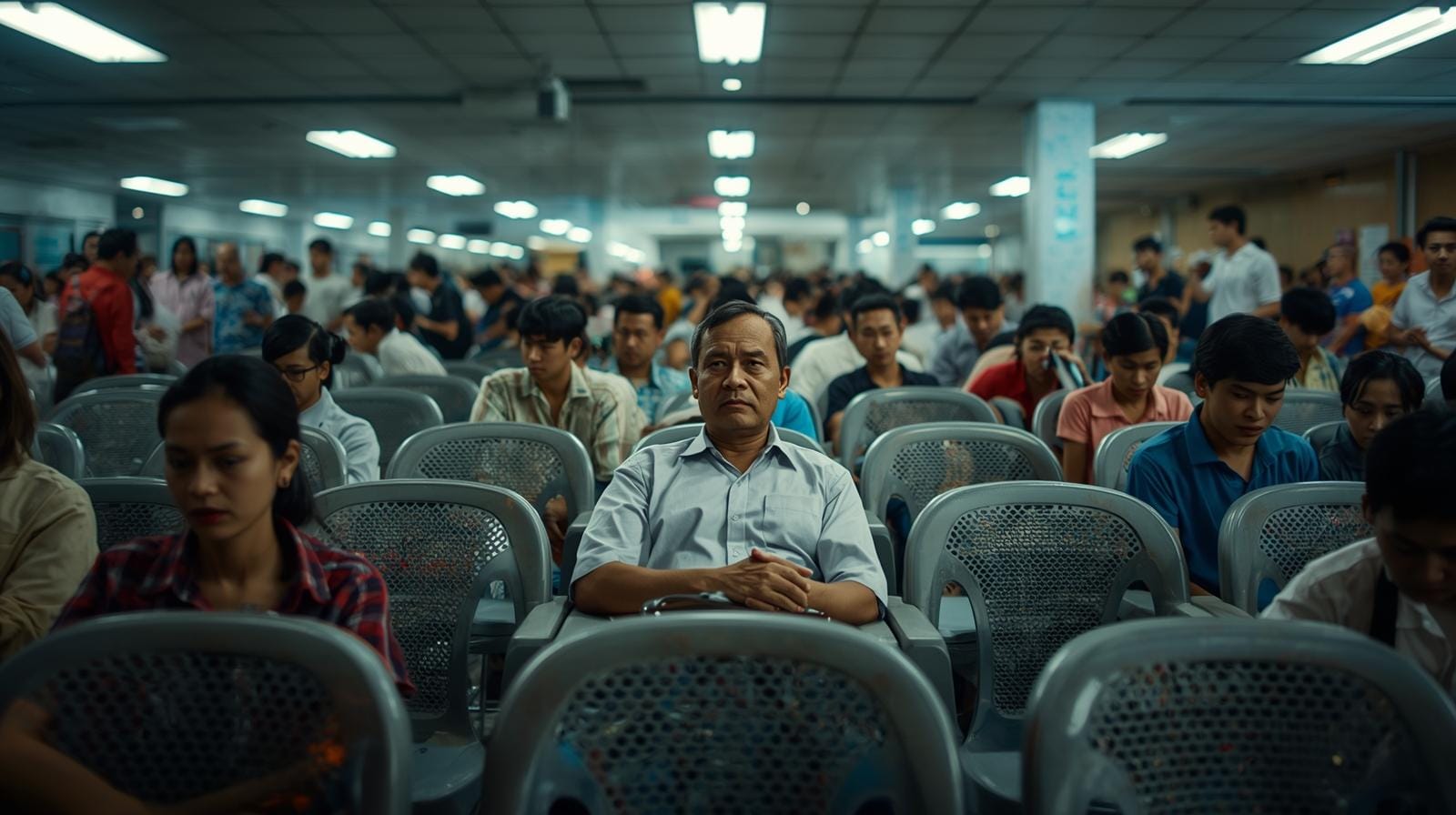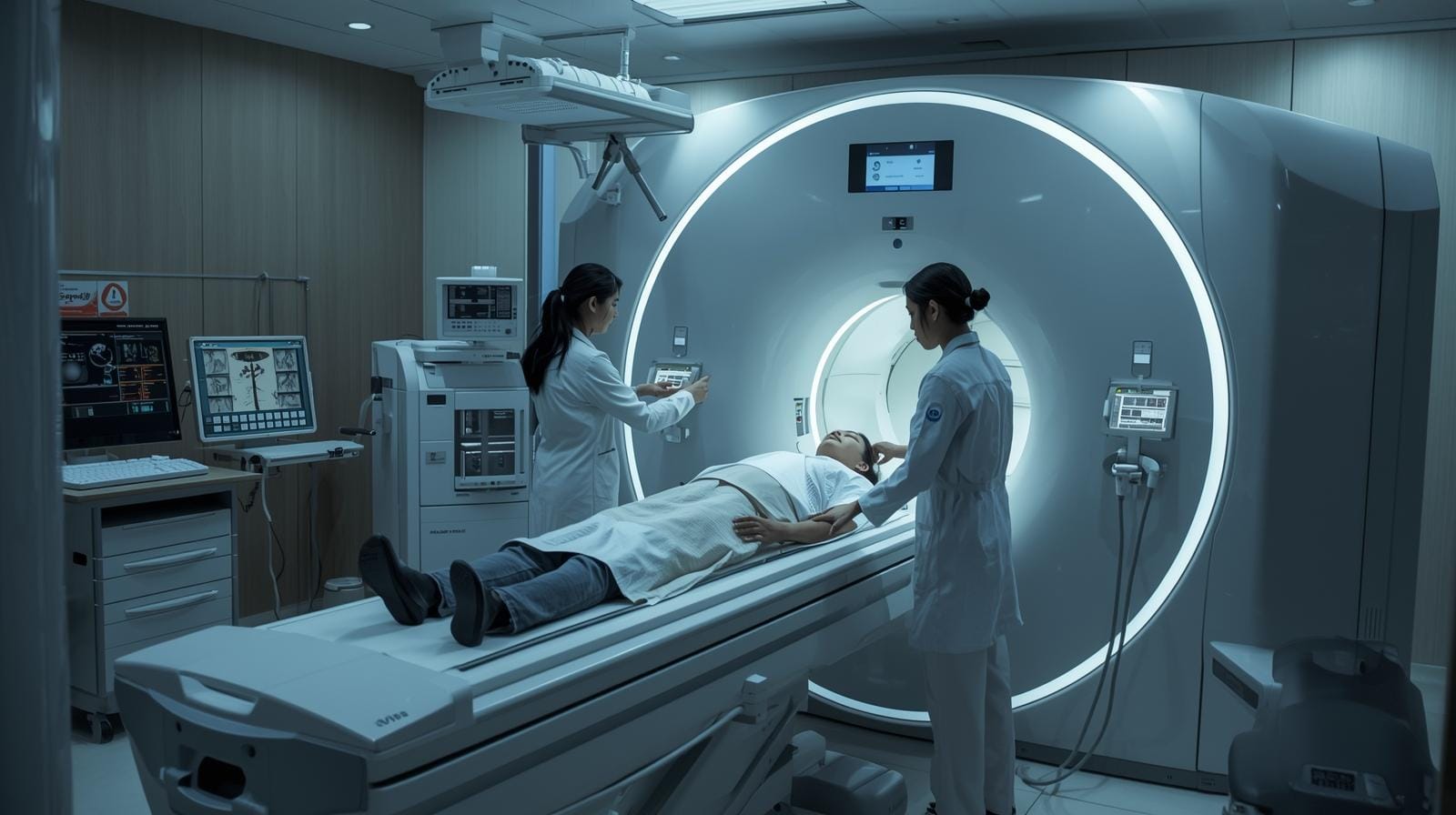First Trip to a Thai Hospital: An Expat's Reality Check
You wake up in Bangkok with a fever and a choice to make. Do you join the hundreds of locals waiting at a government hospital, or do you head to a private clinic with English-speaking staff and plush chairs? Every expat in Thailand faces this crossroads eventually.
The country's healthcare system extends a safety net to all, but how you experience it depends on which door you walk through. At a public hospital, you'll pull a queue number and squeeze into a packed waiting area, relying on basic Thai phrases or a friend's translation help. Opt for a private hospital, and you're greeted at the reception with a smile, likely in English, and whisked through check-in - often in exchange for your insurance details or a credit card swipe.
"In Thailand, quality care is always within reach - what differs is how long you wait and how much you pay for it."
Neither path is "right" or "wrong," but they feel worlds apart. This reality check is the first lesson of expat life here: Thailand offers excellent medical care in both public and private settings, yet the journey to get that care diverges drastically. Knowing what to expect from each option is the key to feeling confident the next time you need a doctor.

Care and Comfort: How Public and Private Hospitals Differ
In terms of medical expertise, Thailand's public and private hospitals share more than you might think. The very same surgeon stitching up patients in a government hospital in the afternoon might be consulting at a private hospital by evening. Where the divergence lies is in the patient experience. Public hospitals, run by the government, tend to be no-frills and high-volume. You may find yourself on a hard plastic chair under flickering fluorescent lights, waiting your turn among dozens of others. When your turn comes, the care is competent - often excellent - but it's delivered assembly-line style. Doctors in public facilities are often managing enormous caseloads. That means your consultation could feel rushed, and any non-essential pleasantries might be skipped to serve the next person in line.
"A public hospital will treat what's ailing you, but a private hospital will make you feel taken care of in the process."
Private hospitals, by contrast, build their reputation on service and comfort. Appointments are readily available, and many facilities allow you to book specific time slots to avoid any wait at all. Nurses and administrative staff usually speak fluent English, ensuring you understand your treatment instead of nodding along anxiously. If you're admitted, a private room with crisp clean sheets and maybe even a couch for family visitors is the norm. In a private facility, you're not just a patient number - you're a customer. The added attention and amenities can make a world of difference when you're ill and far from home. It's healthcare delivered with a smile, but it comes with the implicit understanding that someone (often your insurer) will foot a larger bill for that personal touch.

Technology and Specialists: How Private Hospitals Take the Lead
Thailand's healthcare standards are impressively high across the board, but private hospitals often have an edge when it comes to cutting-edge technology and specialized treatments. Many private facilities in Thailand are internationally accredited and invest heavily in the latest medical equipment. Need an MRI or a complex orthopedic surgery? A private hospital in Bangkok might slot you in the next day with a specialist trained abroad. Meanwhile, a government hospital can certainly perform the same life-saving procedure, but non-urgent cases may sit on a weeks-long waiting list. It's not a question of if public hospitals can handle advanced care - they absolutely can - it's when you'll get it.
"Bangkok's top private hospitals boast technology on par with Western centers, while in rural Thailand the local public hospital might be your only lifeline."
There's also the factor of availability outside the big cities. Private hospitals cluster in major hubs like Bangkok, Phuket, or Chiang Mai. If you're living on a quiet island or up-country village, the nearest fully equipped hospital is likely a government one - or a long drive away. Expats who choose Thailand's idyllic rural life learn to rely on the public system for routine care and emergencies, simply because that's what's there. The good news is those public doctors are skilled at making do with limited resources, and serious cases will be referred to larger facilities. Still, if you anticipate needing premium care for a chronic condition, it may mean planning trips to the city or ensuring your insurance covers medical evacuation to a private center.

The Price of Peace of Mind: Costs, Dual Pricing, and Insurance
If there's one gap that truly separates public and private healthcare for expats, it's the bill at the end. Thailand's public hospitals are funded by tax revenue, which means Thai citizens pay almost nothing for care. Foreigners, on the other hand, are expected to pay their way. The fees at government hospitals are still modest by Western standards - a few dollars for a check-up, maybe a hundred for a minor surgery - but they're no longer uniformly cheap. In fact, a 2019 law officially allows public hospitals to charge foreign patients higher rates than Thais for the same treatment. Your visa status can literally change the price: retirees and tourists often pay more than expats working in Thailand. And that's the "low-cost" option. Private hospital charges, while a fraction of what you'd face in the US or Europe, climb rapidly with each extra service. An uninsured expat who gets into a serious motorbike accident could wake up to a bill in the tens of thousands of dollars. It's the kind of financial shock that can ruin more than your Thai holiday.
"Unless you're exceedingly wealthy or extremely lucky with your health, going without insurance in Thailand is a gamble you don't want to take."
This is why having health insurance isn't just a nice-to-have – it's almost a rite of passage for expats settling here. If you work for a Thai company, you may already be enrolled in the national Social Security scheme, granting you free or low-cost care at a public hospital. Everyone else should look into a private health insurance plan. The good news is that Thailand has a competitive insurance market with options for every budget. Comprehensive plans will cover big hospital bills (inpatient or "IPD" coverage) and even routine doctor visits ("OPD" coverage), often with cashless direct billing at major hospitals. The hardest part is often just overcoming the procrastination and signing up. Once that's done, you can sleep easier - not only because you're covered, but because you've removed one more worry from your expat life. After all, peace of mind is priceless, and in Thailand it comes surprisingly affordably if you plan ahead.

Finding Balance: Embracing Both Systems with Confidence
Over tea in Chiang Mai one afternoon, I met a British retiree who jokingly called himself a connoisseur of Thai hospitals. In his twenty years here, he's seen it all - the bustling public ward where a kindhearted Thai doctor once saved him from a heart attack, and the swanky private hospital where he later got his knee replaced in five-star comfort. His philosophy stuck with me: use the public system for what it does well, and the private system for what it does better. Get your routine check-ups and prescriptions at the local clinic for a few baht, and save the big procedures for a place with an international reputation (and let your insurance pick up the tab).
"You don't have to choose just one path. Living in Thailand means having two healthcare worlds at your fingertips - and knowing you can trust both when it counts."
In the end, navigating Thai healthcare as an expat isn't about declaring one option superior and shunning the other. It's about understanding the trade-offs and making choices that suit your needs in the moment. There will be days when you'll sit in a crowded provincial hospital corridor, practicing patience and your Thai numbers. There will be other days when you'll marvel at how swiftly you were admitted and treated at a private international hospital. Both experiences become stories you collect on your journey. And with a bit of preparation - the right insurance, a few key Thai phrases, a trusted doctor on speed dial - you'll find you can embrace the best of both worlds. After all, living in Thailand as a foreigner is all about adaptation and appreciation. The healthcare chapter is just one part of that story, and you're now better prepared to face it with a smile.

Still stuck in 60-day cycles?
Turn short stays into a 5-year lifestyle with the Destination Thailand Visa — built for digital nomads, remote professionals, and global citizens ready to call Thailand home.
✅ Work online legally
✅ Stay without border runs
✅ Enjoy full-year living flexibility

Still juggling border runs or short-term visas?
Secure 10 years of certainty with the Long-Term Resident Visa (LTR) — designed for investors, executives, and global citizens who want to anchor their lives and assets in Thailand.
✅ Own property and invest with confidence
✅ Bring family under one stable visa
✅ Enjoy global tax efficiency and long-term peace of mind










